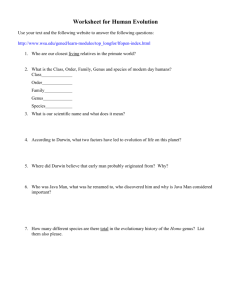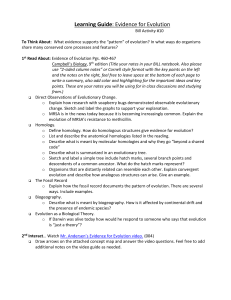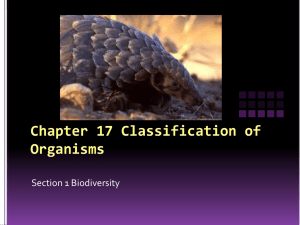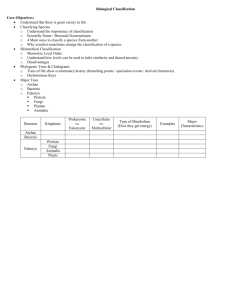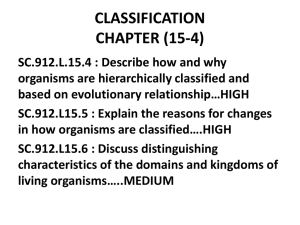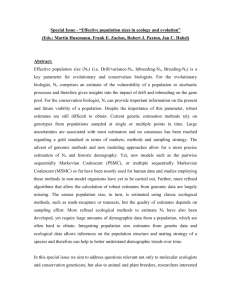Classifying the Diversity of Life
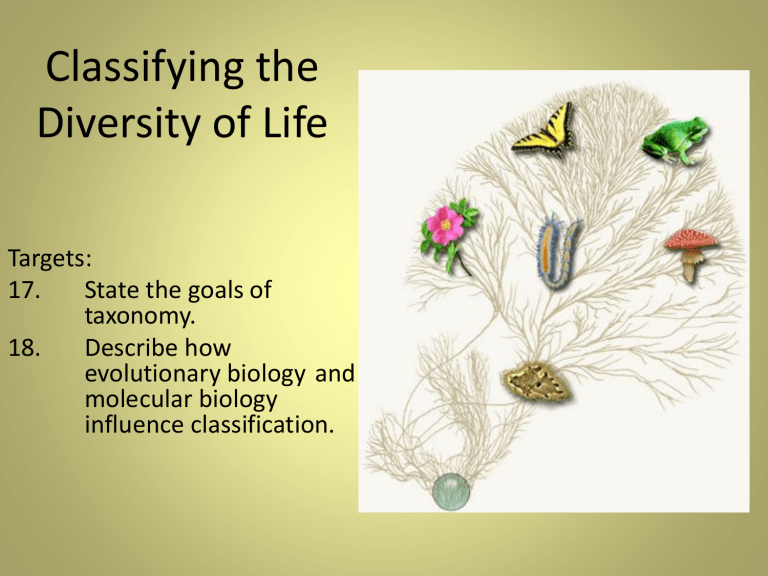
Classifying the
Diversity of Life
Targets:
17. State the goals of taxonomy.
18. Describe how evolutionary biology and molecular biology influence classification.
What is taxonomy?
• The identification, naming and classification of species.
What is the biological species concept?
• A population or group of populations whose members have the ability to breed with one another in nature and produce fertile (has the ability to have babies) offspring.
Who developed the classification system?
• Carolus Linnaeus developed a classification system in the 1700’s.
• This system has two main characteristics:
1. A two-part Latin name for each species
2. A hierarchy or ordering of species into broader and broader groups.
How do we name species?
• Each species is assigned a binomial.
• The first part of the name is the genus to which the species belongs.
• The second part of the name is the species within the genus.
• Genus is broader than species.
• For example, Homo sapiens is our binomial name. Our genus is Homo and our species is
sapiens. This means modern man.
What is the hierarchy of classification?
• Each species is grouped into broader and broader categories.
• There are 7 major categories (going from largest to smallest): Kingdom, Phyla, Class,
Order, Family, Genera, Species.
What is the hierarchy of classification?
Classification of the Domestic Cat
1. What is the domestic cat’s family?
2. What is the domestic cat’s class?
3. What is the domestic cat’s genus?
4. Which is broader Vertebrata or Carnivora?
How does evolutionary biology and molecular biology influence classification?
• Phylogenetic tree is a branching pattern that reflects the hypotheses of evolutionary relationships.
• Molecular data such as comparing genes and their gene products (proteins) are the strongest support for these hypothesis.
With a partner, compare and contrast the evolutionary relationships depicted in both of these phylogenies.
Wrapping-Up
• How does evolutionary biology and molecular biology influence classification?
